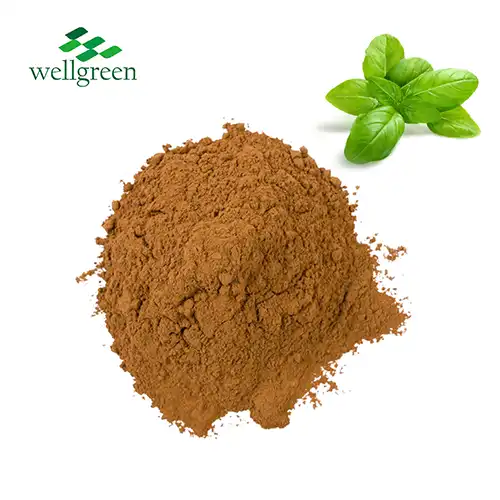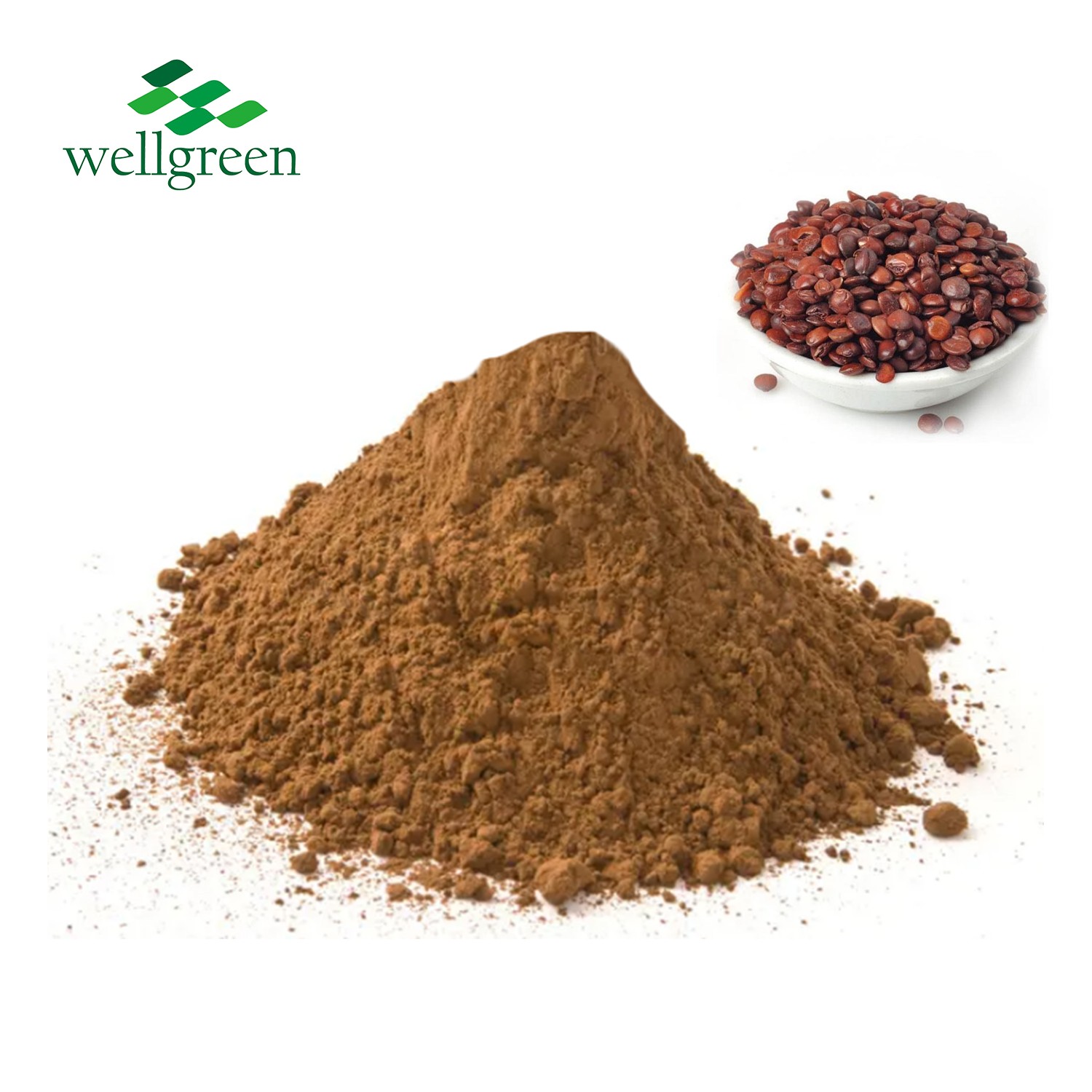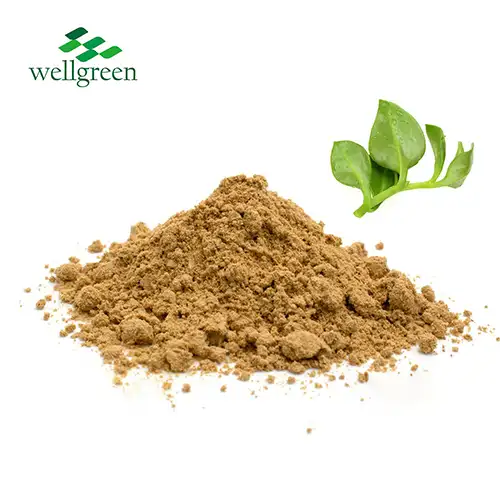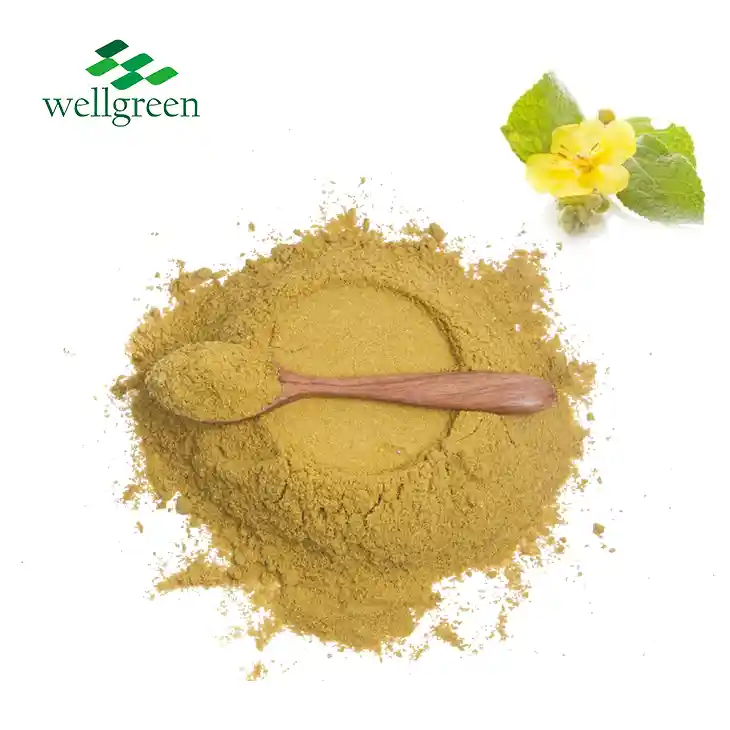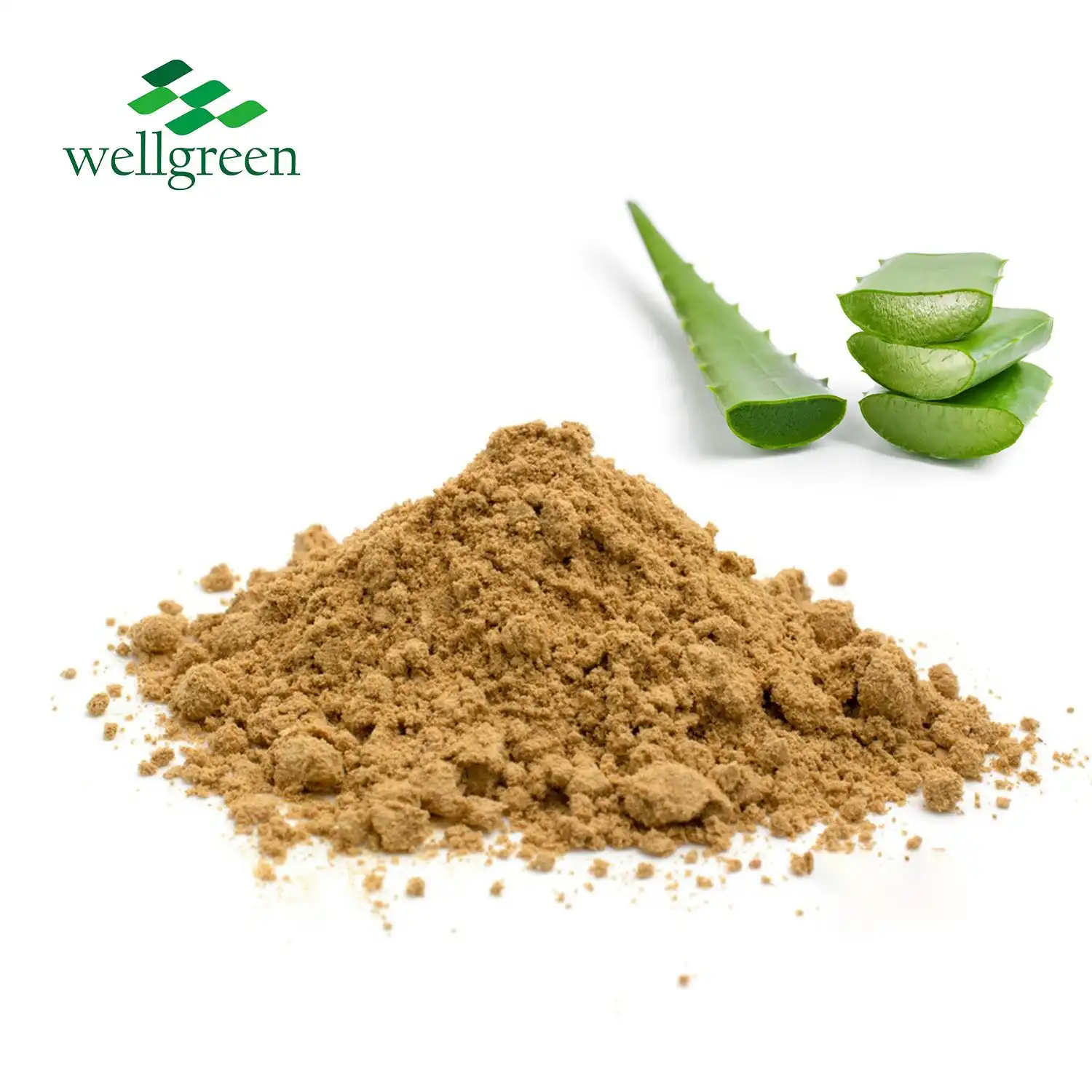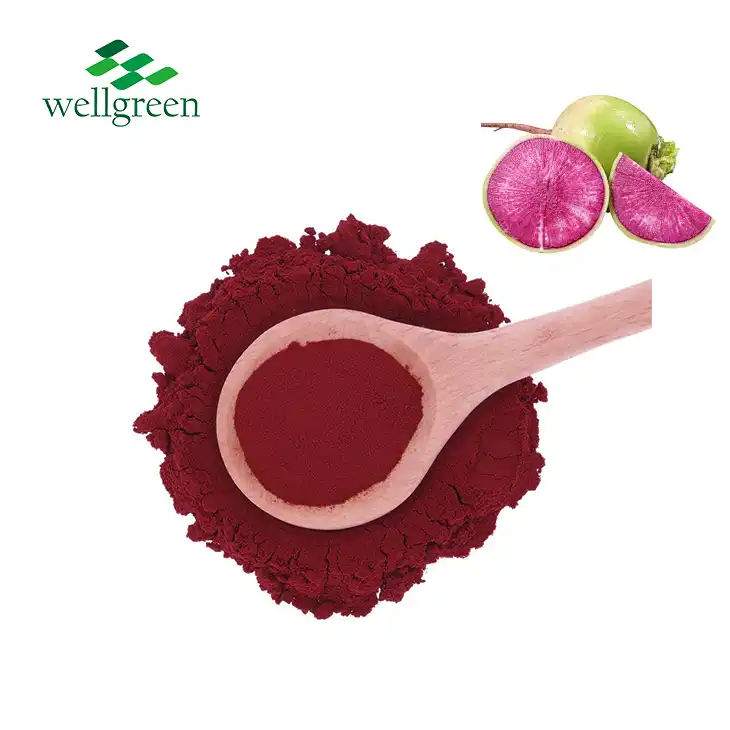Is Eucommia Ulmoides safe?
2024-07-23 16:37:32
Eucommia ulmoides, commonly known as the Hardy Rubber Tree or Du Zhong, has been a staple in Traditional Chinese Medicine (TCM) for centuries. Known for its potential health benefits, including lowering blood pressure, enhancing bone health, and supporting overall vitality, Eucommia ulmoides is gaining interest in the West. However, as with any supplement, safety is a primary concern. This article explores the safety of Eucommia ulmoides leaf extract, its side effects, and best practices for its use.
What Are the Potential Side Effects of Eucommia Ulmoides Leaf Extract?
 Eucommia ulmoides, known for its broad use in Conventional Chinese Medication (TCM), is for the most part viewed as protected when utilized suitably. However, as with any supplement, some people may experience negative effects. Safe use can be ensured by being aware of these potential side effects and taking the necessary precautions.
Eucommia ulmoides, known for its broad use in Conventional Chinese Medication (TCM), is for the most part viewed as protected when utilized suitably. However, as with any supplement, some people may experience negative effects. Safe use can be ensured by being aware of these potential side effects and taking the necessary precautions.
Common Side Effects
Though generally well-tolerated, some individuals may experience mild side effects when taking Eucommia ulmoides leaf extract:
1. Headaches: Mild to moderate headaches may occur in some users, especially during the initial period of use.
2. Dizziness: A few individuals may experience dizziness, which typically subsides as the body adjusts to the supplement.
3. Mild Edema: Occasional reports of mild swelling in the extremities have been noted, which are usually temporary.
Allergic Reactions
While allergic reactions to Eucommia ulmoides are rare, they can occur, particularly in individuals allergic to related plant species. Symptoms of an allergic reaction may include:
1. Skin Reactions: Itching, redness, hives, or rashes.
2. Respiratory Symptoms: Nasal congestion, sneezing, difficulty breathing, or wheezing.
3. Digestive Issues: Nausea, vomiting, or diarrhea.
If you experience any signs of an allergic reaction, discontinue use immediately and seek medical attention.
Clinical Study Findings
Clinical studies have largely demonstrated the safety of Eucommia ulmoides leaf extract. For instance, in a study involving 54 participants taking up to 3 grams of Eucommia ulmoides extract daily, no significant toxicity or adverse effects were reported. These findings suggest that the extract is generally safe when used within recommended dosages.
Can Eucommia Ulmoides Interact with Medications?
While Eucommia ulmoides is widely used for its therapeutic benefits, it is important to consider its potential interactions with certain medications. Although direct evidence of these interactions is limited, the herb’s pharmacological properties suggest that it could theoretically affect various drug therapies. Here are some potential interactions to be aware of:
Interactions with Diabetes Medications
Eucommia ulmoides is accepted to make hypoglycemic impacts, and that implies it can assist with bringing down glucose levels. Diabetes management may benefit from this property; However, when combined with diabetes medications like insulin or oral hypoglycemics (like metformin or sulfonylureas), it may increase the risk. The combination may result in hypoglycemia, a condition characterized by symptoms such as fainting, confusion, dizziness, sweating, and dizziness. Before using Eucommia ulmoides, people with diabetes who are taking medication should closely monitor their blood sugar levels and talk to their doctor.
Interactions with High Blood Pressure Medications
It has been demonstrated that Eucommia ulmoides has antihypertensive effects, which could help lower blood pressure. This could be tricky for people previously taking antihypertensive meds (e.g., ACE inhibitors, beta-blockers, diuretics) as the consolidated impact could cause circulatory strain to drop excessively low (hypotension). Fatigue, dizziness, blurred vision, and fainting are all signs of hypotension. Before taking Eucommia ulmoides leaf extract and blood pressure medications together, it is important to keep an eye on your blood pressure on a regular basis and talk to a doctor.
Interactions with Anticoagulants and Antiplatelet Drugs
There is a likely gamble of connections between Eucommia ulmoides and meds that influence blood thickening, like anticoagulants (e.g., warfarin, heparin) and antiplatelet drugs (e.g., ibuprofen, clopidogrel). Eucommia ulmoides may have an impact on the mechanisms by which blood clots form, which could make bleeding more likely. Side effects of unnecessary draining incorporate strange swelling, delayed draining from cuts, and blood in pee or stools. Before using Eucommia ulmoides, people who are taking these medications should talk to their doctor to make sure there won't be any interactions and that it will be safe to use.
Interactions with Other Medications
Eucommia ulmoides may interact with other medications metabolized by the liver, in addition to the interactions with diabetes medications, antihypertensive medications, and anticoagulants. The active ingredients in the herb might have an effect on liver enzymes like cytochrome P450, which could change how drugs are broken down and how well they work. For a risk assessment, patients with chronic conditions or those taking liver-metabolized medications should talk to their doctor.
How Should Eucommia Ulmoides Be Used for Maximum Safety and Efficacy?
The traditional herb Eucommia ulmoides has gained popularity due to its potential health benefits. To guarantee greatest security and viability while utilizing Eucommia ulmoides, observing specific rules and considerations is significant:
Recommended Dosage
There are no normalized measurements for Eucommia ulmoides, yet studies propose that as much as 3 grams each day of the leaf remove is powerful and ok for momentary use. This measurement has been related with different medical advantages, including diminished pulse and worked on bone wellbeing, without critical incidental effects. However, individual responses can vary, so it's important to make sure the dose is right for you and your health conditions.
Forms of Eucommia Ulmoides
Eucommia ulmoides extract is available in several forms, each with its own advantages:
1. Capsules and Tablets: These are convenient and provide a standardized dose, making it easier to monitor and adjust your intake.
2. Teas: Drinking Eucommia ulmoides tea is a traditional method that allows for gradual absorption of its active compounds. It can be a soothing way to incorporate the herb into your daily routine.
3. Extracts and Tinctures: These concentrated forms can be added to water or other beverages, offering flexibility in dosing. They are usually more potent, so careful measurement is essential.
Guidelines for Safe Use
 To maximize the benefits and minimize the risks of using Eucommia ulmoides, follow these guidelines:
To maximize the benefits and minimize the risks of using Eucommia ulmoides, follow these guidelines:
1. Start with a Low Dose: Begin with a lower dose to see how your body reacts. Gradually increase the dosage as needed, allowing your body to adjust. This approach helps to identify any potential adverse reactions early on.
2. Follow Manufacturer Recommendations: Always adhere to the dosage instructions provided on the product label. Manufacturers often provide guidelines based on the concentration and form of the product, ensuring safe and effective use.
3. Consult a Healthcare Provider: Before starting Eucommia ulmoides, consult with a healthcare provider, especially if you have underlying health conditions or are taking other medications. This is crucial for individuals with conditions such as hypertension, diabetes, or those on blood-thinning medications.
4. Monitor for Side Effects: Be vigilant about any side effects, particularly gastrointestinal issues such as bloating, loose stools, or allergic reactions like hives. If any adverse symptoms occur, discontinue use and seek medical advice.
5. Consider Quality and Purity: Choose products of high quality from reputable manufacturers. To ensure that they are free of contaminants like pesticides and heavy metals, look for supplements that have been independently tested and certified by organizations like the U.S. Pharmacopeia (USP) or NSF International.
6. Short-Term Use: While Eucommia ulmoides is viewed as safe for momentary use, its drawn out security isn't irrefutable. It is fitting to involve the spice in cycles or enjoy reprieves occasionally to stay away from possible long-haul unfavorable impacts.
Conclusion
Eucommia ulmoides has all the earmarks of being a protected home-grown supplement for a great many people when utilized fittingly. Eucommia ulmoides extract is a valuable addition to both traditional and modern medicine due to its potential health benefits, particularly for cardiovascular and bone health. Nonetheless, similarly as with any enhancement, it is crucial for use it dependably, know about expected secondary effects, and talk with medical care suppliers to guarantee it doesn't disrupt different drugs or ailments. As examination keeps on developing, Eucommia ulmoides may find a more characterized job in integrative wellbeing rehearses.
References
1. Verywell Health. Eucommia: Benefits, Side Effects, and Preparations.
2. Examine.com. Eucommia Bark: Benefits, Dosage, and Side Effects.
3. Drugs.com. Eucommia Uses, Benefits & Dosage.
4. The Bircher Bar. 5 Key Eucommia Bark Benefits - Backed By Science.
5. White Rabbit Institute of Healing. Eucommia (Du Zhong).

